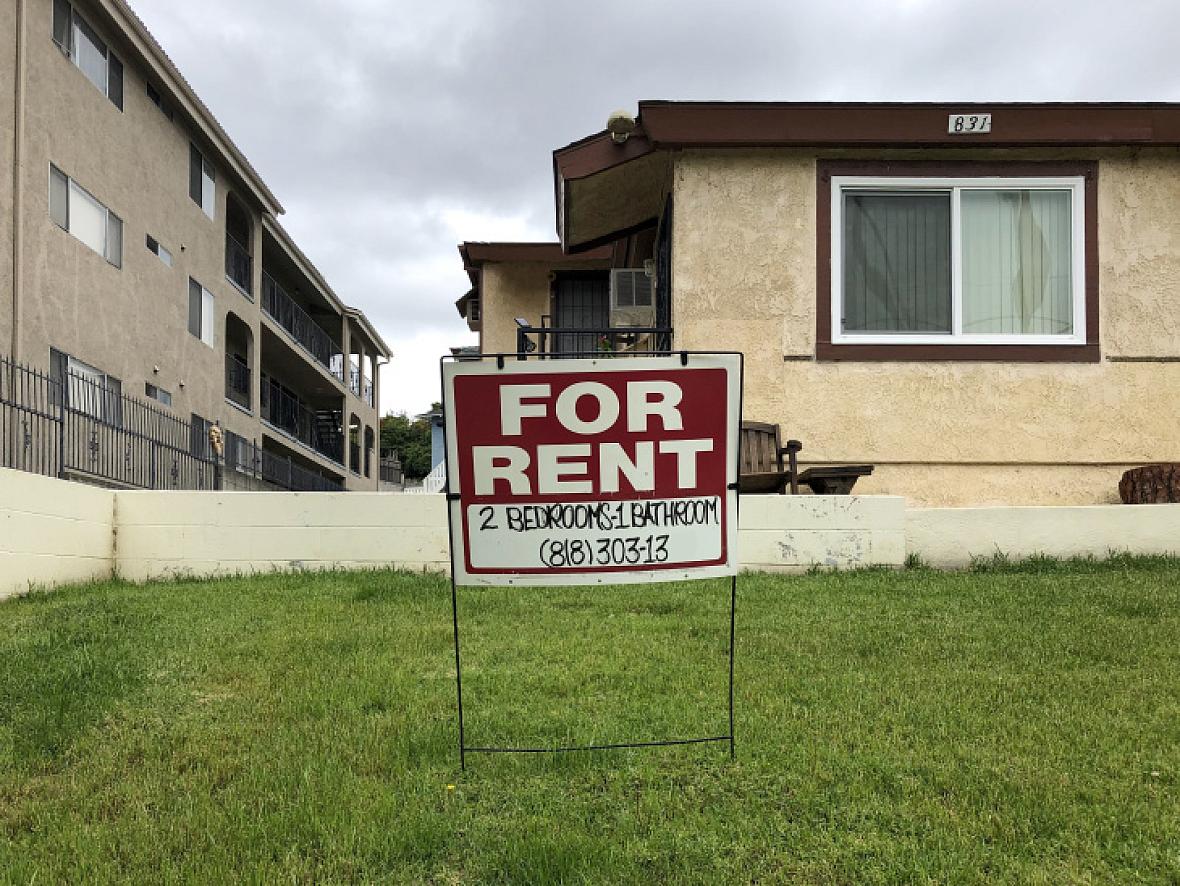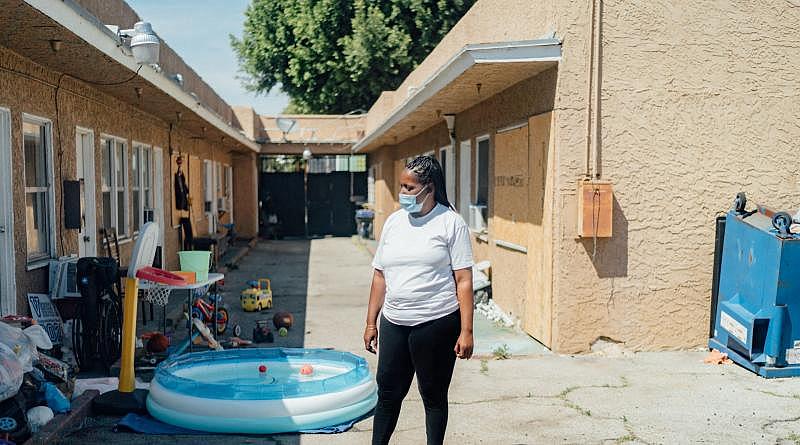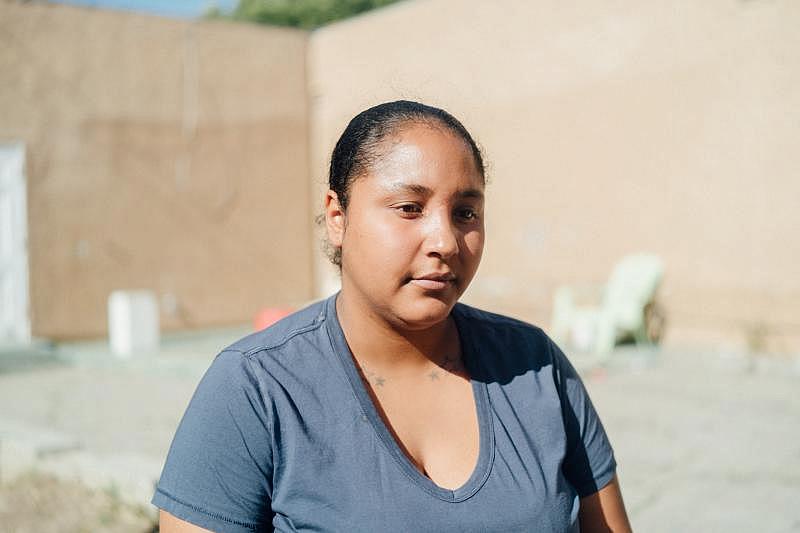‘Completely Worthless’: LA’s Program To Legalize Bootleg Apartments Falls Short
This is Part Three of a series on unpermitted housing by David Wagner, a 2020 Data Fellow.
His other stories include:
Part 1: Exposed Wires, Bugs, And Eviction Notices: Life In An Unpermitted LA Apartment Complex
Part 2: Tenants Feel Stranded As LA Cuts Back On Unpermitted Housing Enforcement During The Pandemic

An apartment for rent in Central Los Angeles.
(MATT TINOCO/LAIST)
A four-year-old program designed to bring unpermitted Los Angeles housing units up to code has fallen far short of expectations.
While there are thousands of such “bootleg apartments” across the city, only 39 have been approved for occupancy through the city’s program.
“It's been a completely worthless program,” said city councilman Paul Koretz, an early advocate who originally had high hopes for the effort. “It's even more ineffective than I had realized.”
Bootleg apartments have been a long-standing problem in the city. For decades, they’ve been carved out of larger units or tucked away in former laundry rooms.
Our reporting has found that during the pandemic, tenants in illegal units have faced unsafe conditions, harassment from landlords and threats of eviction, all at a time when the city was dramatically cutting back on citations related to unpermitted housing.
However, many bootleg apartments are affordable, providing a home to people who may otherwise find themselves unhoused.
Back in 2017, local lawmakers weren’t happy with how the city was handling these units.
The housing department was shutting down hundreds of low-cost apartments every year and kicking tenants out. According to estimates at the time, this approach to enforcement caused L.A. to lose more than 1,700 units between 2010 and 2015.
“We were essentially finding permanent, naturally occurring, affordable housing and doing our best to ruin it,” Koretz said.
An Offer Of Amnesty For Bootleg Apartment Owners — But Landlords Didn’t Apply
Four years ago, L.A.’s city council passed a program to give bootleg apartment owners a streamlined way of bringing units up to code in exchange for amnesty.
It’s called the Unpermitted Dwelling Units program, and the city initially saw it as a win-win for landlords and tenants. Landlords would get to avoid legal trouble, and tenants would get to stay in an affordable unit.
When the program was approved in 2017, Koretz hoped it would preserve a lot of affordable housing in a city that desperately needs it. Mayor Eric Garcetti’s office also said the program would “create more affordable housing and protect thousands of Angelenos from eviction.”
But according to statistics provided by the city’s planning department, that hasn’t happened. Landlords have applied for 131 building permits through the program, and the city has granted 71, according to the data. But only 39 of those units are now legally allowed to house tenants.
‘There Will Be No Consequences For Their Bad Actions’
Koretz believes landlords are dissuaded from participating in the program because of a mandate that units must be kept affordable under a 55-year covenant. He told us he plans to introduce a motion getting rid of that requirement.
“There's no need for a covenant in these units,” Koretz said, arguing that because these apartments are less desirable to begin with, rents will naturally remain low. “My intention is to remove the covenant requirement, which I think will pull everyone in.”
Dan Yukelson, executive director of the Apartment Association of Greater Los Angeles, agreed that the 55-year covenant has been a huge barrier. Kim Moore stands in a courtyard of the unpermitted apartment complex where she lives in L.A.’s Mid-City neighborhood. (AL KAMALIZAD/LAIST)
“There are literally thousands of these units that could be brought into compliance with the city, if they did not impose such restrictive covenants,” he said.
But some say the city should keep the covenants. Greg Spiegel of the Inner City Law Center said getting rid of them would only reward landlords who chose to break the law.
Without guarantees of affordability, Spiegel said, “There will be no consequences for their bad actions of building an illegal unit.”
He argues the program’s results aren’t surprising, given its limited scope. The city’s planning department estimated in 2017 that fewer than 2,500 units would be eligible.
Unpermitted granny flats and garage conversions on single family home lots — which represent a huge chunk of the city’s informal housing stock — are excluded from the program.
Is It Too Late To Fix The Program?
Spiegel believes participation could probably be improved with better awareness.
“There are so many things one can do to evaluate a program — about how well it's marketed — before you gut it, and make it a giveaway to people who are acting illegally,” he said.
Informal housing experts say there may be other barriers to participation. For example, bootleg apartment owners may lack the resources needed to bring units up to code, said UCLA urban planning professor Vinit Mukhija.
“It might also be necessary for the city to be willing to spend money — perhaps in the form of loans — to bring units that are somewhat substandard into compliance,” he said.
The low participation highlights how hard it can be for cities to bring informal housing out of the shadows, Mukhija said.
“I am very happy that instead of shutting down the units, the city is trying to preserve them,” he said. “But this is a difficult task.”
The Apartment Association’s Yukelson said many property owners have given up on the program, and are instead seeking to add units to their buildings through recent changes in state law.
“People are building accessory dwelling units, because they're basically allowed to build them by right,” he said.
Kamisha Nafarrete said she briefly lived in a hotel before moving into this unpermitted apartment building. (AL KAMALIZAD/LAIST)
It’s not clear how many existing bootleg apartments are being legalized through the changes in state law.
While policymakers debate why only 39 units have been legalized under the city’s program, tenants living in unpermitted units say they’re fed up with L.A.’s crushing rents.
Last year, Kamisha Nafarrete faced threats of eviction from an unpermitted apartment in L.A.’s Mid-City neighborhood. She said once she’s finally able to move out, she plans to leave the state for good.
“I grew up in California,” Nafarrete said. “I'm from California. There's no place like this to me. I just can't afford it.”
This story was produced as a project for the USC Annenberg Center for Health Journalism’s 2020 Data Fellowship.
[This story was originally published by LAist].
Did you like this story? Your support means a lot! Your tax-deductible donation will advance our mission of supporting journalism as a catalyst for change.

